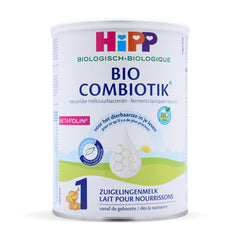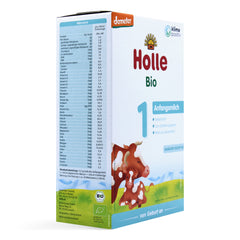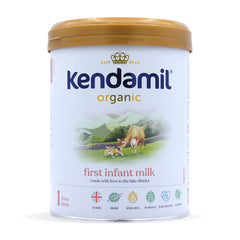Everyday Child Care Guide For Busy Parents
44 hours of research 5 minute read

Today's world moves at a lightning pace, especially when you're juggling being a parent and keeping up with everything else. It's tough to find a balance between work, chores, and spending quality time with your little one. But don't worry, there are ways to make it all feel less overwhelming.
Caring for your baby involves lots of little tasks, like feeding and bathing, that require your attention and patience. In this guide, we'll walk through these everyday tasks and provide you with simple tips to handle them. Plus, we'll share some strategies to help you balance your responsibilities as a parent, making the journey a little easier.
Whether you're a newbie to parenthood or just in need of some helpful advice, this guide is here to support you. So, let's dive in together and make the journey of parenting a lot more manageable.
Balancing Responsibilities with Care and Ease
Here, we'll explore practical strategies to help busy families maintain balance, ensuring both your responsibilities and your child's well-being are prioritized effectively. From establishing routines to seeking support when needed, these tips will empower you to navigate parenthood with care and ease.
1. Establishing Routines
One of the most effective ways to streamline child care is by establishing routines. Consistent routines provide structure and stability for both parents and children, reducing stress and promoting a sense of security. This includes setting regular meal times, bedtime routines, and designated playtime. By sticking to a predictable schedule, you can minimize disruptions and create a more harmonious environment for your family.
2. Prioritizing Self-Care
As a busy parent, it's easy to neglect your own well-being in favor of taking care of your child's needs. However, prioritizing self-care is crucial for preserving both your physical and mental well-being. Make time for activities that recharge your batteries, whether it's exercising, reading a book, or simply enjoying a quiet moment alone. It's important to bear in mind that looking after yourself empowers you to fulfill your role as a parent to the best of your ability.
3. Simplifying Meal Prep
Mealtime can often be a hectic affair, especially for busy parents. Simplify the meal prep process by planning ahead and preparing meals in bulk whenever possible. Invest in convenient kitchen gadgets such as slow cookers or Instant Pots to save time and effort. Additionally, involve your child in meal prep activities to encourage healthy eating habits and foster a sense of independence.
Child Care Support Networks

4. Creating a Support Network
Raising a child is a team effort, and having a support network can make all the difference. Reach out to family members, friends, or fellow parents for assistance. Consider options like infant daycare, adult babysitter, or early education center to assist when needed or joining parenting groups or online forums where you can connect with others facing similar challenges. Building a support network not only provides practical help but also emotional support during tough times.
5. Maximizing Quality Time
Although your schedule may be packed with commitments, it's crucial to prioritize quality time with your child. Carve out dedicated time each day to engage in activities together, whether it's playing games, reading stories, or simply chatting about your day. These moments of connection strengthen your bond with your child and create lasting memories that they will cherish.
6. Embracing Imperfection
In the midst of juggling multiple responsibilities, it's easy to feel overwhelmed and guilty about not being the "perfect" parent. However, it's important to remember that perfection is unattainable, and mistakes are inevitable. Embrace imperfection and focus on being present for your child, rather than striving for unattainable ideals. Celebrate small victories and learn from challenges along the way.
7. Setting Boundaries
Setting boundaries is essential for maintaining a healthy balance between work and family life. Learn to say no to additional commitments that may encroach on precious family time. Establish clear boundaries with employers and colleagues regarding your availability outside of work hours. By prioritizing boundaries, you can create a more sustainable and fulfilling lifestyle for you and your family.
8. Practicing Mindfulness
Mindfulness is a powerful tool for managing stress and staying present in the moment. Incorporate mindfulness practices into your daily routine, such as meditation, deep breathing exercises, or simply taking a moment to appreciate the beauty of your surroundings. By cultivating mindfulness, you can reduce anxiety, improve focus, and enhance your overall well-being as a parent.
9. Seeking Professional Help
It's okay to ask for help when needed, and seeking professional support can be invaluable for busy parents. Whether you're struggling with parenting challenges, mental health issues, or work-life balance, don't hesitate to reach out to therapists, counselors, or parenting coaches for guidance. Investing in your own personal growth and development ultimately benefits both you and your child.
Essential Child Care Guide
Now that we've explored strategies for managing responsibilities, let's delve into another vital part of child care: hygiene and grooming. Keeping your baby clean and healthy is crucial. In this section, we'll offer practical tips to help busy parents handle hygiene care confidently and easily.
Facial Hygiene
Facial hygiene is an important aspect of caring for your baby, helping to keep their delicate skin clean and healthy. Follow these tips for gentle facial cleansing:
- Use a Soft Cloth: For everyday cleaning, dampen a soft cloth with lukewarm water and gently wipe your baby's face, paying special attention to areas prone to milk dribbles or spit-up, such as around the mouth and chin.
- Be Gentle: Handle your baby's face with care, avoiding any harsh rubbing or scrubbing that could irritate their sensitive skin.
- Pat Dry: Following the cleansing process, softly pat your baby's face dry using a gentle towel to minimize any potential friction.
Neck Hygiene
The folds and creases in your baby's neck can trap moisture and become a breeding ground for bacteria if not properly cleaned. Here's how to care for your baby's neck:
- Keep it Dry: After bath time or if your baby sweats or drools, be sure to dry their neck thoroughly, paying attention to the folds where moisture can accumulate.
- Clean Regularly: Use a soft cloth dampened with water to gently wipe the creases in your baby's neck, removing any dirt, drool, or residue.
- Air Circulation: To prevent moisture buildup, ensure proper air circulation around your baby's neck by dressing them in loose-fitting clothing, especially in warm weather.
Bottom Care

Proper diapering is essential for keeping your baby comfortable and ensures optimal skin health in the diaper area. Follow these steps for effective diapering and bottom care:
- Choose the Right Diaper: Select diapers that fit your baby well and are appropriate for their age and size to prevent leaks and discomfort.
- Change Frequently: Check your baby's diaper frequently and change it as soon as it becomes wet or soiled to prevent diaper rash and discomfort.
- Gentle Cleansing: Use fragrance-free baby wipes or a soft cloth with warm water to gently cleanse your baby's bottom during diaper changes, ensuring thorough cleaning.
- Air Time: Give your baby's bottom some time without a diaper to air dry before putting on a fresh one, which can help prevent diaper rash and promote healing if any irritation is present.
- Apply Diaper Cream: If your baby experiences a diaper rash, apply a thin layer of diaper cream containing zinc oxide or petroleum jelly to protect their skin and promote healing.
Cutting Nails
Trimming your baby's nails can be nerve-wracking for many parents, as the thought of accidentally nicking their delicate skin is anxiety-inducing. Yet, it's a crucial task that shouldn't be ignored. Baby nails grow quickly, and without regular trimming, they can become sharp and pose a scratching hazard. Here are some tips to make the process smoother:
- Choose the Right Time: Aim to trim your baby's nails when they are calm and relaxed, such as after a bath or during nap time.
- Opt for the Right Tools: Choose nail scissors or baby nail clippers with round edges designed for safe trimming.
- Secure Positioning: Decide whether to lay your baby down on a soft surface or hold them securely while you trim their nails.
- Ensure Clear Visibility: Gently push the fingertip away from the nail to get a better view before cutting.
- Gentle Approach: Hold your baby's finger firmly but gently, and carefully trim the nails straight across to avoid ingrown nails.
- Precision Matters: Trim only the white part of the nail, avoiding cutting too close to the skin to prevent any accidental injuries.
- Keep Up with Maintenance: Aim to trim your baby's nails around once a week to keep them comfortable and safe as they grow.
Cleaning Teeth and Gums

Even before your baby's first tooth emerges, it's essential to establish good oral hygiene habits. Follow these tips for cleaning your baby's gums and emerging teeth:
- Start early: Begin cleaning your baby's gums even before teeth appear by gently wiping them with a soft, damp washcloth after feedings or at least twice every day. This gentle cleaning helps remove bacteria and debris after feedings.
- Introduce a Toothbrush: Once your baby's teeth begin to emerge, typically around the 6-12 month mark, it's time to introduce a soft-bristled infant toothbrush. Use it with water to gently brush their teeth twice a day, ensuring thorough cleaning.
- Use Fluoride Toothpaste: When your baby's teeth start to touch, usually between 12 to 24 months, you can introduce a smear of fluoride toothpaste about the size of a grain of rice. This helps prevent cavities and promotes healthy tooth development.
- Supervise Brushing: As your baby grows, encourage them to hold the toothbrush and mimic your brushing motions. However, it's essential to closely supervise their technique to ensure thorough cleaning and prevent any accidental swallowing of toothpaste.
Hair Care
While babies, especially newborns, may not have much hair, establishing a hair care routine can contribute to maintaining a clean and healthy scalp for your little one. Here's how to care for your baby's hair:
- Gentle Washing: Use a mild baby shampoo and lukewarm water to wash your baby's hair, ensuring it's no more than 2-3 times a week for newborns to avoid drying out their scalp. For older babies, wash as needed based on their activity level, exposure to dirt, and personal preference.
- Support Their Head: Always support your baby's head and neck while washing their hair to prevent discomfort or injury.
- Rinse Thoroughly: Be sure to rinse your baby's hair thoroughly after shampooing to remove all traces of shampoo, as residue can irritate the scalp.
- Pat Dry: After washing, gently pat your baby's hair dry with a soft towel to avoid rubbing or tugging on delicate strands.
- Brush or Comb Gently: When grooming your baby's hair, use a soft-bristled brush or a comb and handle their hair with care, gently removing any tangles or knots.
Ear Care
Proper ear care is essential for maintaining your baby's overall health and well-being. Follow these guidelines for cleaning your baby's ears safely:
- Outer Ear Cleaning: Use a soft, damp cloth to gently wipe the outer ear and behind the earlobe during bath time to remove any dirt or debris.
- Avoid Cotton Swabs: Never insert cotton swabs or any other objects into your baby's ear canal, as this can push wax deeper inside and cause injury.
- Monitor for Signs of Infection: Keep an eye out for signs of ear infection, such as fever, ear pulling, or discharge, and consult your pediatrician if you have concerns.
Nose Care
Babies are prone to nasal congestion due to their narrow nasal passages, making nasal care an essential part of baby care. When your infant experiences nasal congestion, it's necessary to assist in clearing their nose as they are unable to blow their nose independently. Here's how to clear your baby's nose safely:
- Use Nasal Saline Drops or Spray: Use saline drops or spray to moisten and loosen mucus before suctioning it out with a bulb syringe or nasal aspirator.
- Use a Bulb Syringe / Nasal Aspirator: A bulb syringe, also known as a nasal aspirator, can be used to suction out mucus from your baby's nose gently. Squeeze the bulb of the syringe, then gently insert the tip into your baby's nostril. Release the bulb slowly to suction out the mucus.
- Elevate Their Head: Keep your baby's head elevated during sleep to help ease congestion and promote better breathing.
- Steam Therapy: Consider using a humidifier or taking your baby into a steamy bathroom to help alleviate nasal congestion naturally.
- Gentle Cleaning: Even when there's no congestion, it's essential to keep your baby's nose clean. You can use a soft, damp cloth or cotton ball to gently wipe around the outside of your baby's nostrils. Be careful not to insert anything into your baby's nostrils.
Bathing your Baby
Bath time can be a delightful bonding experience for both parent and baby. Follow these steps for a safe and enjoyable bathing routine:
- Gather Supplies: Before beginning, ensure you have all the essential items on hand before bathing your baby. What you'll need for baby's bath:
- Baby bathtub or sink insert
- Mild baby soap or cleanser
- Soft washcloth or sponge
- Towel
- Soft washcloth or sponge
- Clean clothes and diaper
- Baby lotion or moisturizer
- Maintain a Safe Temperature: Fill the bathtub with warm (not hot) water and test the temperature with your elbow or wrist to ensure it's comfortable for your baby.
- Support Their Head: Always support your baby's head and neck while bathing to prevent accidental slips or injuries.
- Keep it Brief: Limit bath time to 5-10 minutes to prevent your baby from getting too cold or experiencing dry skin.
- Gentle Cleansing: Use a soft washcloth and mild baby soap to gently cleanse your baby's skin, avoiding harsh scrubbing or excessive rubbing.
- Dry Thoroughly: After bath time, pat your baby's skin dry with a soft towel and moisturize with a gentle baby lotion to keep their skin soft and hydrated.
Guide for Busy Parents

Balancing the demands of parenthood with the whirlwind of modern life requires patience, resilience, and a proactive approach. Throughout this guide, we've shared practical tips to tackle essential childcare tasks, ensuring your baby's well-being while empowering you to navigate the challenges of parenthood. Whether you're a seasoned parent seeking a refresher or a newcomer to the journey of raising a child, we hope these insights have been valuable.
With the right strategies and a touch of patience, everyday childcare becomes more manageable. By following the tips outlined in this guide, you can ensure your baby receives the gentle care and attention they deserve and that you can create a nurturing environment for both you and your little one to thrive, even amidst your busy schedule.
Remember, every moment spent caring for your little one is an opportunity to bond and create cherished memories that will last a lifetime. So take a deep breath, trust your instincts, and enjoy the journey of parenthood.
3 Convenient Baby Formulas Preferred by Busy Parents
Organic Life Start is committed to providing accurate, reliable, and trustworthy information to parents and caregivers. We carefully choose credible sources and follow a meticulous fact-checking process to uphold the highest standards in infant nutrition and parenting advice. To learn more about our dedication to accuracy, please explore our editorial guidelines.
Link To Sources











Raelyn -
Parents who are trying to keep up with their young children and their daily routines will find this Everyday Child Care Guide For Busy Parents to be an absolute lifesaver. It provides easy-to-follow instructions that even the busiest people can follow. People really valued the advice on how to save time and how to keep up with both work and parenthood. For busy parents like me who are looking for easy ways to keep everything organized and connected, this is an essential read.
Kimber -
Hi, Brook. What works for us is never skipping baths, even in cold weather, and applying a good moisturizer. Works like a wonder!
Brook -
I’ve heard conflicting advice on how often to bathe a baby, especially during colder months. What has worked best for other parents in balancing hygiene and preventing dry skin?